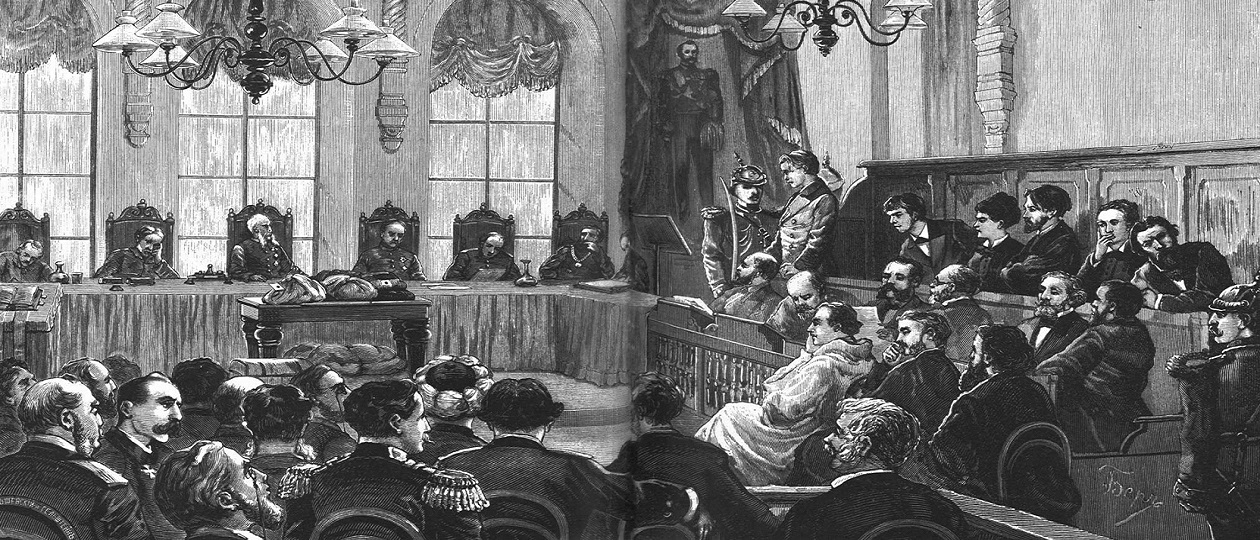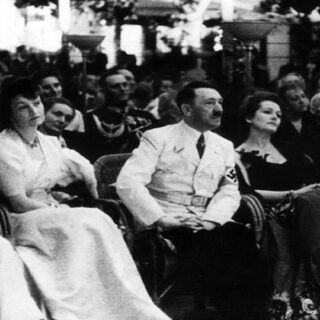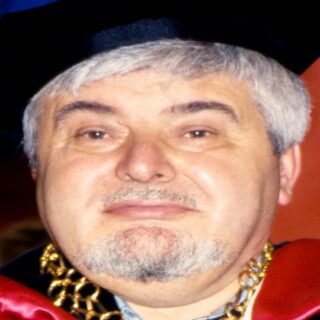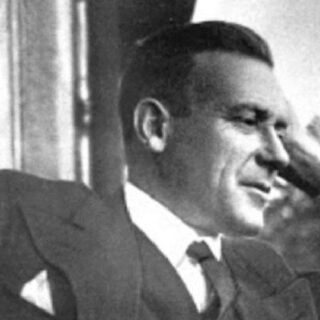
The People’s Will [Народная Воля] occupies a special and even honorable place in the history of Russian, European, and world terrorism.
A Legendary Terrorist Organization
Even historians who usually condemn terrorism often make an exception for the People’s Will. For example, American specialist Walter Laqueur wrote <<Sofiya Perovskaya and Vera Figner are symbols of one type of terrorism; Ulrike Meinhof and Patty Hearst are symbols of another type. >> Sofiya Perovskaya and Vera Figner were members of the People’s Will. Ulrike Meinhof was a leader of the West German Red Army Fraction and Patty Hearst belonged to the American Symbionese Liberation Army.
The major accomplishment of the People’s Will was the assassination of Tsar Alexander II on March 1, 1881 (old calendar). There are huge elements of mythmaking in the history of the People’s Will from its founding in 1879 right down to the last attempts in the early 1890s to restore it.
In the history of political terrorism in the Russian Empire between 1866-1881, the Narodovol’tsy (members of the People’s Will) are often portrayed as shining examples of self-sacrifice as compared to the <<apostle of destruction>> Sergei Nechaev and his notorious organization the People’s Vengeance in 1869 and to the bloodthirsty <<terrorists of a new type>> from the ranks of the Socialists-Revolutionaries, Maximalists, Bolsheviks, Mensheviks, ethnic minority parties, anarchists, and marginal leftist groups in the Russian Revolution of 1905-1907.
Historians often use the term <<edinoborstvo>> [единоборство]—single-handed combat to describe the struggle of the Narodovol’tsy against the tsarist government. This conjures up images of knightly combat waged by people willing to suffer death for a noble cause.
What gets ignored by historians is that the People’s Will was the organic link between the terrorists of the 1860s and the terrorists of the early 20th century. Historians often emphasize the high moral principles that distinguish the People’s Will from other terrorist movements in Russia, but, as we shall see, the People’s Will had its dark side, and used mystification and deceit to attract followers.
A Controversial Subject in Russia
The People’s Will has been a controversial subject in the Soviet Union and the Russian Federation for decades. Study of the People’s Will in the Soviet Union was banned for about 20 years. Soon after the assassination of Leningrad Communist Party Secretary Sergei M. Kirov on December 1, 1934, Joseph Stalin learned that Kirov’s assassin L.V. Nikolaev kept a portrait of narodovolets Andrei Zhelyabov in his room. Stalin remarked to A.A. Zhdanov «if we raise our people on the People’s Will, then we will be bringing up terrorists>>. In other words, Stalin did not want people reading about the People’s Will and trying to imitate it by assassinating him.
Only after the 20th Communist Party Congress in 1956 could Soviet historians study and write about revolutionary populism in the 1870s, the People’s Will, and non-Bolshevik political parties and movements. However, tight ideological restraints remained in place and Soviet historians presented a very selective history of the People’s Will. They usually focused on the activities of the Executive Committee and its satellite organizations between 1879-1882. Historians rarely wrote about the many attempts to restore the People’s Will from 1883, when the Executive Committee was destroyed, to 1894.
Furthermore, Soviet historians generally downplayed the significance of terrorism in the People’s Will and preferred to present the organization as a democratic front of all oppositional elements fighting for political freedom.
This approach protected them from being accused of idealizing terrorism. Vladimir Lenin’s condemnation of individual terrorism in 1902 certainly had the People’s Will in mind when he spoke about the experience of history. <<Because the Socialist-Revolutionaries (SRs), by including terrorism in their programme and advocating it in its present-day form as a means of political struggle, are thereby doing the most serious harm to the movement, destroying the indissoluble ties between socialist work and the mass of the revolutionary class. No verbal assurances and vows can disprove the unquestionable fact that present-day terrorism, as practised and advocated by the Socialist-Revolutionaries, is not connected in any way with work among the masses, for the masses, or together with the masses; that the organisation of terroristic acts by the Party distracts our very scanty organisational forces from their difficult and by no means completed task of organising a revolutionary workers’ party; that in practice the terrorism of the Socialist-Revolutionaries is nothing else than single combat, a method that has been wholly condemned by the experience of history.>> Single combat referred to the terrorist struggle of the People’s Will against the autocracy.
Nevertheless, Soviet historians in their own way rehabilitated the history of the People’s Will. Soviet publicists in the 1980s gave the organization a positive assessment in their works condemning contemporary terrorism in Western Europe and other parts of the world. The People’s Will theme became with very popular with writers with many biographical novels of the narodovol’tsy in the Flaming Revolutionaries [Пламенные революционеры] series.
Since the collapse of the Soviet Union in 1991, many solid studies have been written about the People’s Will. However, popular writers tend to demonize the narodovol’tsy and regard the assassination of Tsar Alexander II as the first step on the road to the <<Golgotha of 1917>>, the Revolution of 1917-1922. Since Golgotha refers to the hill in Jerusalem on which Jesus Christ was crucified, this implies that the People’s Will initiated the monstrous crime of Christ killing. Followers of conspiracy theories repeat accusations from the 19th century that the Jews, Poles, Ukrainian separatists, British intelligence, high aristocrats, senior bureaucrats, and members of the imperial family participated in the assassination. [5] The emphasis upon non-Russians participating in the assassination reinforced hysteria about Jewish conspiracies then and now. As British historian Norman Cohn <<The authorities were determined at all costs to mask that the fact that there were real Russians—and educated ones at that—who so hated the autocracy that they were prepared to assassinate its representatives. They accordingly pretended that all opposition to the regime, and particularly all terrorism, was the work of the Jewish world-conspiracy.>>
Just what made the People’s Will the object of both intense idealization and demonization over some 140 years?
What was the People’s Will?
The history of the People’s Will can be summarized as follows. The organization emerged in June, 1879 as the result of a split within Russia’s major populist revolutionary organization Land and Freedom [Земля и Воля]. Land and Freedom, organized in 1876 after the disastrous «Going to the People» of 1874 when several thousand young propagandists went to the villages in hope of igniting a peasant revolution. Land and Freedom was officially committed to conducting socialist propaganda among the peasants for a socialist revolution, but it also permitted terrorism as «disorganizing activities» directed against spies, cruel officials, and others who harmed revolutionary work. Terrorist attacks in 1878 and the first half of 1879 were conducted by members of Land and Freedom, individual revolutionaries, and a group of about 10 people calling themselves the Executive Committee of the Social Revolutionary Party. The practice of terrorism did not cause the split within Land and Freedom, but rather its emphasis. Those forming the People’s Will opted for political terrorism – specifically through the assassination of the tsar. Narodovol’tsy maintained that because power in Russia was concentrated in the person of the tsar, an act of regicide [assassination of a monarch] would lead to the collapse of the state. They differed on tactics and many goals although the goal of regicide was paramount. Many members of the People’s Will expected that terrorism would force the regime to grant a constitution that would permit socialist propaganda and eventually bring about a socialist revolution. Other members expected that regicide and the resulting collapse of the state would allow the People’s Will to ignite a peasant revolution. Still others wanted a seizure of political power, with the help of their military supporters, but without popular support, and then enact socialist transformations from above. Members of the People’s Will differed on whether the political or social revolutions could be combined or would happen in stages. Their opponents who formed Black Repartition [Черный Передел] opted for conducting socialist propaganda and economic terrorism – terrorist acts against landowners and factory owners, also known as factory-agrarian terrorism.
The People’s Will did not disappear from the historical stage neither after the assassination of Alexander II nor after the final destruction of the Executive Committee in 1882-1883, On the contrary, the People’s Will and groups acting in its name dominated the revolutionary socialist movement in the reign of Alexander II. Almost all revolutionaries in this period called themselves Narodovol’tsy and many of them undertook numerous attempts to restore the People’s Will between 1883-1894. Even the first Russian Marxists could not overcome the attractiveness of the People’s Will heritage and they often combined elements of Marxism and People’s Will Ideology.
Many revolutionaries during this period that the People’s Will had seriously shaken the foundations of the Russian state. Furthermore, the Narodovol’tsy demonstrated to future revolutionaries that the assassination of Tsar Alexander II meant that there was no going back in the revolutionary cause.
The next article will look at what made the People’s Will so attractive to many people over the past 140 years.
Citations
- Laqueur Walter. The age of terrorism. London: Weidenfeld and Nicolson, 1987.
- Рокки Тони. Идеологическое и тактическое оружие организации «Народной воли» : как народовольцы стали легендарными в истории терроризма (The ideological and tactical weapons of the People’s Will organization: how the narodovol’tsy became legendary in the history of terrorism). // Сборник материалов VIII Международной научно-практической конференции. 7–9 октября 2020 г. Тула-2021, с. 421-432.
- Будницкий О.В. Терроризм в российском освободительном движении: идеология, этика, психология (вторая половина XIX – начало XX в.). (Terrorism in the Russian liberation movement: ideology, ethics, psychology (second half of the 19th century to the start of the 20th century)). 2-е издание, дополненное. Москва: «Российская политическая энциклопедия» (РОССПЭН), 2016.
- Lenin, V. I. Why the Social-Democrats Must Declare a Determined and Relentless War on the Socialist-Revolutionaries (February 1902) https://www.marxists.org/archive/lenin/works/1902/jul/00.htm
- Иконников-Галицкий, Анджей. Самоубийство империи: терроризм и бюрократия, 1866-1916. (Suicide of the empire: terrorism and the bureaucracy, 1866-1916). Второе издание, дополненное. Санкт-Петербург: ЛИМБУС ПРЕСС, 2015.
- Cohn, Norman. Warrant for Genocide: The Myth of the Jewish World Conspiracy and the Protocols of the Elders of Zion. London: Serif, 2005.
- Rocchi, Tony. Terrorism in the Russian Empire: lessons of history for today’s war on terrorism. Part II: The People’s Will and its role in the history of political terrorism in Russia.// Историческая и социально-образовательная мысль. Toм 11 №2, 2019, cc. 83-102. https://cyberleninka.ru/article/n/terrorism-in-the-russian-empire-lessons-of-history-for-today-s-war-on-terrorism-part-ii-the-people-s-will-and-its-role-in-the-history-of-political





